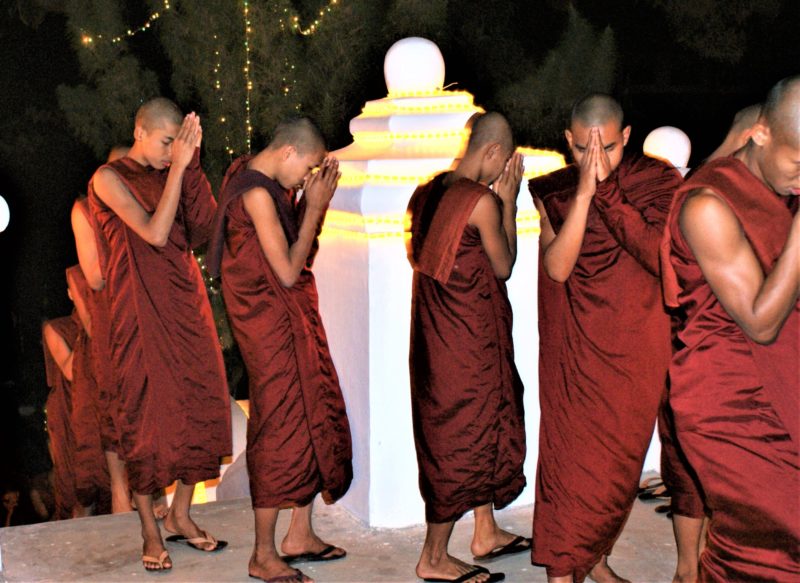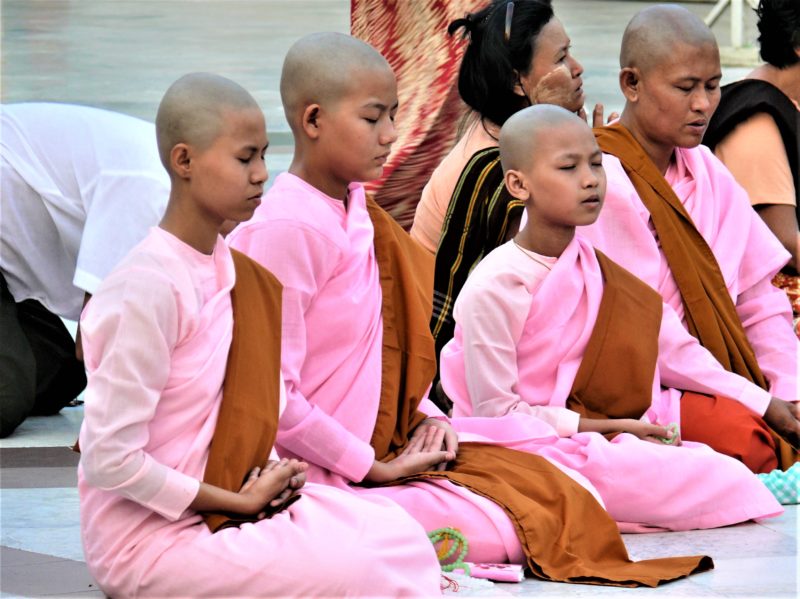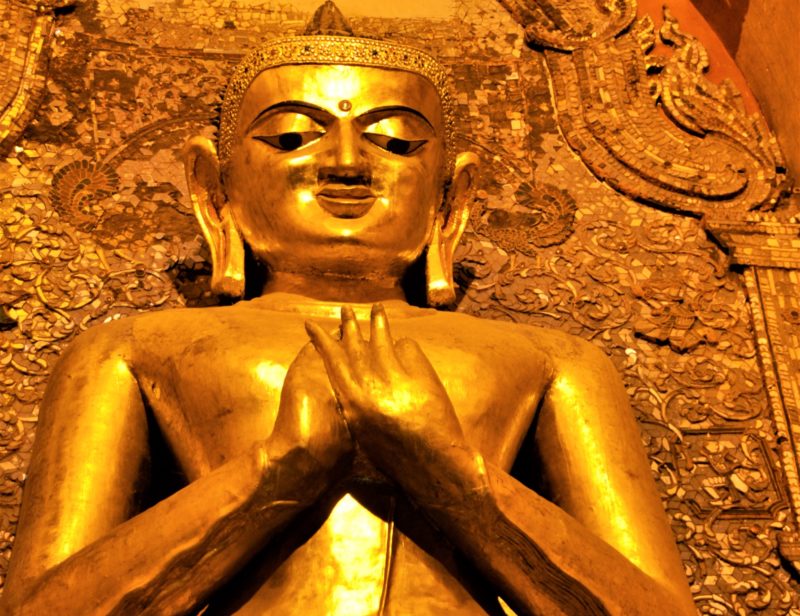


The dominant religion of Myanmar is Buddhism. Buddhism is practiced by 89.3% of the population, Christianity is practiced by 5.6%. The Islamic religion is practiced by 3.8% and there is also Hinduism, practiced by 0.5%. 0.2% of the population practice animism. Burmese Buddhism is attached to the branch known as “Theravada” (Small Vehicle). It is the more conservative type of Buddhism, which adherents say retains the Buddha’s teachings without modification. Who is Buddha?
The Buddha is not God. He is a teacher who taught the truth of omniscience. He was born in Nepal in 544 BC. He descended from the Sakya family and his father ruled a kingdom. His birth name was Sittha, and his name was changed to Gotama Buddha when he became Buddha. He became a Buddha at the age of 35 years and died at the age of 80. The word Buddha means omniscience (the one who knows all through the past, present, and future). According to Gotama Buddha, he was not the only Buddha in the universe. He was only the fourth Buddha in the world of the five Buddhas.
Buddhism is neither a religion nor a philosophy because Buddhism does not accept the idea of god as creator, and has no theories either. It is a doctrine of the reality of reincarnation. First, we must understand that Buddhists believe in reincarnation and karma, the natural law of causes and consequences. The heart of the Buddha’s teaching is found in the “Four Noble Truths”
Having a life or body is suffering. Nobody can escape suffering from birth, from being old, from sickness, or from death. Association with unpleasant persons or dependence on unpleasant conditions, separation from loved ones or loss of pleasant conditions, not getting what one desires, grief, lamentation, and distress are all forms of physical and mental suffering.
A happy feeling or condition of a happy life is not permanent or eternal. Change will come sooner or later because nothing lasts forever. When it occurs, there is pain and there is also suffering.
That thirst, greed, desire, and attachment give birth to all forms of suffering and the continuity of beings. This is not the only cause, but it is the most important cause. Our life today is the result of the desires and attachments of our previous life.
When desire is mixed with ignorance, we make good and bad actions, which produce Karma.
Consequently, we have life now and will also be reincarnated without end.
This is known as Nirvana. Nirvana means “extinction of thirst”
Nirvana is the supreme bliss where there is no wish or desire, and no suffering. This is an ultimate truth. Nirvana and Paradise are not the same. Heaven is not eternal paradise. After death, there is continued reincarnation until one achieves Nirvana. After Nirvana, there is no reincarnation.
This truth is known as the Middle Path because it avoids two extremes. One extreme is the pursuit of happiness that depends on the pleasure of the senses, and the other is the pursuit of happiness through different forms of asceticism. The Buddha, who himself tried these two extremes, and recognized them both as useless, uncovered the path that leads to enlightenment. There are eight practices to follow along this path:
These Four Noble Truths are found in ourselves. We must meditate to find them.
Meditation is the only way to reach Nirvana. This is the only way to escape reincarnation. You have to be in a quiet place to meditate, close your eyes and focus on breathing (inhalation and exhalation).
The power of concentration is essential for the realization of Nirvana. When you concentrate on your breathing, you have to focus on the evolution of the body. This will allow you to realize that nothing is permanent or eternal. So we don’t need to be attached to anything in this world, including ourselves and our bodies. There are several methods of meditation and several places to meditate in Burma. If you are interested, we can arrange a meditation stay at one of these locations.
References in bookstores: